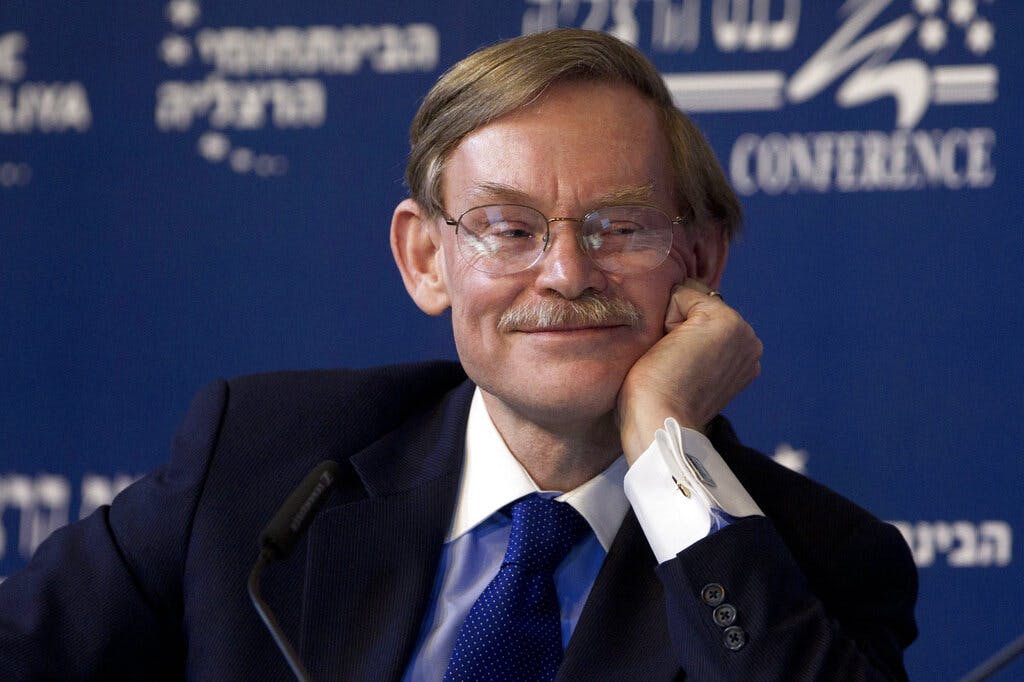Will the FT Apologize to Robert Zoellick?
It once mocked its own op-ed contributor for suggesting a role for gold in the monetary system, but guess who’s buying the monetary metal now.

What’s this — another story in the Financial Times about how central banks are buying gold? It seems like only yesterday that it was our burden to record all the derision from the FT about the idea that there might be a logic to bringing back a role for gold in the monetary system. At one point, the FT had the president of the World Bank, Robert Zoellick, write a piece suggesting a role for gold. Then it promptly denounced him for the heresy.
Now comes one of the FT’s own opinion columnists, Ruchir Sharma, marking the news that “central banks are buying more tons of gold now than at any time since data begins in 1950.” Mr. Sharma, the head of Rockefeller Capital Management’s international business, writes that “the oldest and most traditional of assets, gold,” is serving now as “a vehicle of central bank revolt against the dollar.”
Driving this trend, the FT reports in a separate article from Mr. Sharma’s column, is the Ukraine war, which forced central banks to “rethink investment strategies,” especially among “countries that are not aligned with the west.” We’re not so sure the FT has thought this through. Inflation is a monetary phenomenon, and was going on before Russia invaded Ukraine. What’s driving this, in our view, is excessive spending by the United States Congress.
In any event, central banks account for a record-setting 33 percent of global demand for gold, Mr. Sharma observes, pushing the value of fiat currencies down to “near-record levels.” The People’s Republic of China’s central bank, for one, has been snapping up gold, taking its reserves above 2,000 metric tons for the first time. America still leads the world in gold reserves, though, with just over 8,000 metric tons of the money in its vaults.
The interest in gold comes amid rising fears that “the dollar will be dethroned” as the basis of global exchange, economist Desmond Lachlan observes. He points to the reassurance of the ex-chairman of the Fed, Paul Volcker, who said “for the dollar to be replaced as the world’s leading currency, it had to be replaced by another currency.” Mr. Lachlan sees neither the euro nor China’s renminbi as viable rivals to the almighty dollar.
Economic historian Niall Ferguson notes that “being fed up with the dominance” of the dollar is “old hat.” “Don’t tell that to the many countries racing to find an alternative,” Mr. Sharma writes. Of the 10 central banks buying gold, he says, nine “are in the developing world, including Russia, India, and China.” It’s no coincidence, Mr. Sharma contends, that “these three countries are in talks with Brazil and South Africa about” forging a dollar rival.
Why, Mr. Sharma asks, “are emerging nations rebelling” against the greenback? Chalk it up to the Biden Administration deploying “the Economic Weapon” — sanctions — including freezing Russian overseas central bank reserves. We have noted how “the scale of the Russia sanctions” raised “the question whether any fiat currency is safe.” Mr. Sharma contends that “weaponizing the dollar” weakened “global trust in US institutions and rule of law.”
With some 30 percent of nations now facing sanctions from the developed world, Mr. Sharma writes, it has become “clear that any nation could be a target.” So, in Mr. Sharma’s view, it’s no wonder that gold is beginning to look like an appealing alternative. Brazil’s president, for one, says he wonders “why every country needs to trade in the dollar.” He asks: “Who decided it was the dollar after the disappearance of the gold standard?”
Welcome to the age of the fiat dollar, in which, as Mr. Sharma suggests, disaffected nations are eager “to trade with one another directly, in their own coin” — just as the world did for centuries, with gold as the measure of monetary value. It was Mr. Zoellick who suggested “employing gold as an international reference point” back in 2010 in the pages of the FT. Its editors promptly urged readers to ignore him. We look forward to their apology.

